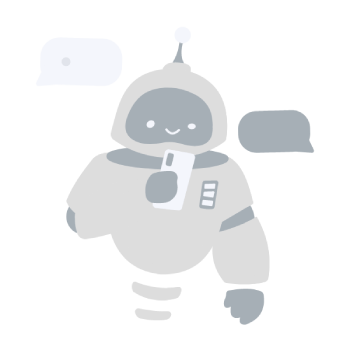
In our ever-connected world, the Internet of Things (IoT) has emerged as a transformative force, revolutionizing industries and the way we interact with technology. From smart homes to industrial automation, IoT has found its way into various aspects of our lives. Let's find out its wide-ranging applications that are shaping the present and future of technology in this article.
What is IoT?
The Internet of Things (IoT) refers to the network of interconnected physical objects or "things" that are embedded with sensors, software, and other technologies that enable them to collect, exchange, and act on data. These objects can range from everyday devices such as household appliances, vehicles, wearable devices, industrial machinery, and more. The key idea behind IoT is to enable these objects to communicate and interact with each other and with centralized systems over the internet, creating a seamless and intelligent network of interconnected devices.
The IoT Ecosystem: A Network of Devices
Imagine a world where everyday objects have the ability to communicate, share information, and work together seamlessly. This is the essence of the IoT ecosystem. Devices, ranging from simple sensors to complex machines, become part of a digital network that transcends traditional boundaries. This network enables data-driven insights, real-time monitoring, and remote control, leading to enhanced productivity and convenience.
There are some applications of IoT in our life:
- Smart Homes: One of the most recognizable and accessible applications of IoT is in the realm of smart homes. Smart thermostats, lighting systems, security cameras, and voice-controlled assistants are just a few examples of IoT devices that empower homeowners to control and monitor their environment remotely. These devices enhance energy efficiency, convenience, and security.
- Healthcare: IoT is reshaping the healthcare industry by enabling remote patient monitoring, personalized treatment plans, and real-time data sharing between medical professionals and patients. Wearable devices, like fitness trackers and smartwatches, collect health data and provide insights into individuals' well-being.
- Industrial IoT (IIoT): In the industrial sector, IoT is revolutionizing operations through the Industrial Internet of Things (IIoT). Factories and manufacturing plants use IoT sensors to monitor equipment health, track inventory, optimize supply chains, and even predict maintenance needs. This leads to reduced downtime, increased efficiency, and cost savings.
- Transportation: The transportation industry benefits from IoT applications such as smart traffic management, connected vehicles, and predictive maintenance for fleets. These technologies enhance road safety, reduce congestion, and improve fuel efficiency.
- Agriculture: IoT is transforming agriculture with smart farming techniques. Sensors collect data on soil moisture, temperature, and crop health, enabling farmers to make data-driven decisions to optimize crop yields and resource usage.
- Retail: Retail businesses leverage IoT for inventory management, customer behavior analysis, and personalized shopping experiences. Smart shelves and RFID tags help track inventory levels in real time, while data analytics enable retailers to tailor offerings to consumer preferences.
- Energy Management: IoT plays a significant role in energy conservation and management. Smart grids, energy-efficient appliances, and automated lighting systems contribute to reduced energy consumption and a more sustainable future.
- Environmental Monitoring: IoT devices are deployed to monitor environmental parameters such as air quality, water quality, and pollution levels. This data aids in understanding and addressing environmental challenges.
- Smart Cities: IoT technologies are a cornerstone of smart city initiatives. Connected infrastructure, intelligent transportation systems, and waste management solutions optimize urban living conditions, making cities more sustainable and livable.
- Supply Chain and Logistics: IoT improves visibility and transparency in supply chains by tracking shipments, monitoring storage conditions, and predicting delivery times. This leads to efficient inventory management and reduced wastage.
The Internet of Things (IoT) has transformed from a concept to a reality, shaping industries and redefining how we interact with technology. Its broad applications, from smart homes to industrial automation, reflect the depth of its impact on various sectors. As IoT continues to evolve, it will undoubtedly play a pivotal role in driving innovation, efficiency, and sustainability across the globe. The interconnected world of IoT has opened the door to a new era of possibilities, where data-driven insights and automation empower individuals, businesses, and societies to thrive.

More than 1500 employers trust Devwork for their recruitment needs:
Cost optimization - Save time - Professional quality
Sign up for Devwork today to increase your company's competitiveness.
Or contact us
Email: hello@devworkx.vn
Tag Cloud:
Author: Phan Thị Hải Anh
Related Articles

How to learn programming from zero? Best tips for new beginners
Learning development from scratch can be a rewarding journey, but it can also be challenging. Don’t worry about that, here's a step-by-step guide on how to get started with development....
Portrait of a Vietnamese developers
The tech industry in Vietnam has been experiencing significant growth in recent years, becoming an integral part of the country's economy and global tech ecosystem. Vietnamese developers play a crucial role in shaping the industry's trajectory. This article delves into the characteristics of Vietnamese developers, examining their age, experience, gender, and location. By exploring these aspects, we can gain insights into the diverse and dynamic nature of the Vietnamese tech workforce.

The impact of ChatGPT on software engineer job opportunities in 2023
In recent years, technological advancements in artificial intelligence (AI) have begun to reshape various industries, and the field of software engineering is no exception. One notable development is ChatGPT, an AI language model that has the potential to revolutionize the way we interact with computers and automate various tasks. This blog post delves into the impact of ChatGPT on job opportunities for software engineers in the year 2023.

Unleashing the Power of Rust and its applications in software development
In the dynamic world of programming languages, Rust has emerged as a game-changer, offering a unique blend of performance, safety, and modern syntax. Rust, often dubbed as a "systems programming language that’s safe, concurrent, and fast," has gained significant traction since its inception. This blog post dives deep into the essence of Rust and explores its diverse applications in software development, highlighting its strengths, features, and impact on the tech landscape.


The impact of AI advancement on software engineers: Navigating a changing landscape
Artificial Intelligence (AI) has rapidly evolved from a futuristic concept to an integral part of our daily lives. As AI technologies continue to progress, they are reshaping industries and professions, including the role of programmers. In this blog post, we will delve into the profound influence of AI development on programmers and explore how this transformative landscape is affecting their skills, responsibilities, and prospects.

What is Blockchain? Blockchain applications and trends in 2023
In the realm of technological innovation, blockchain stands out as a groundbreaking concept that has the potential to revolutionize industries across the spectrum. Originating as the backbone of cryptocurrencies, blockchain has evolved into a versatile tool with applications far beyond digital currencies. As we enter the year 2023, the landscape of blockchain continues to evolve, with new trends shaping its trajectory. In this comprehensive blog post, we will explore "What is blockchain?"




